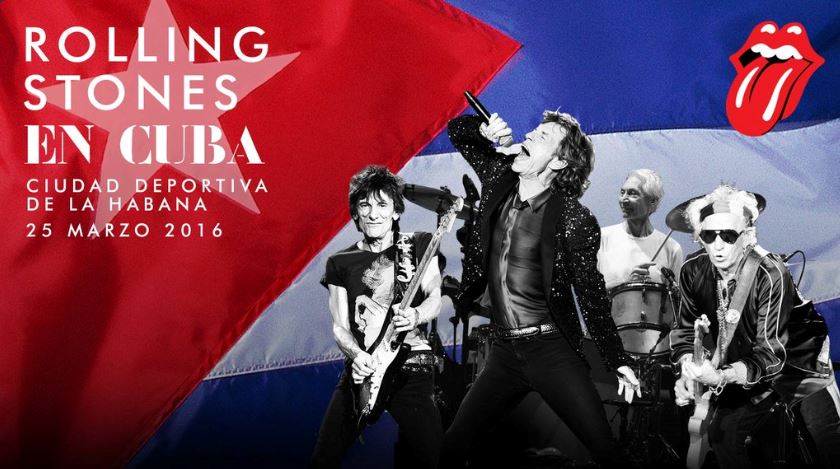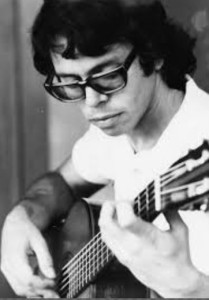
Those Rolling Stones years
HAVANA — You see a picture in a Havana newspaper announcing the arrival of the band to this city in its first and surely only appearance and you can’t help but stand in front of the mirror in a comparative stance to determine whether you or the musicians deteriorated more with the pitiless passing (and weight) of the years.
Many of us won’t be able to see the Rolling Stones. Something happened to our generation that kept us from surmounting the 70-year barrier. About half of us are dead and a similar number left the country. In fact, those of us who remain are few, very few.
Notwithstanding what some musicologists (uncommitted to themselves or to others) may say, listening and enjoying the Stones — along with other groups, including the Beatles — in the 1960s was a clandestine act. Our scholarly or political future was at risk if some report said that So-and-so listened to extravagant foreign music, entertaining but ideological, “and besides, note how he dresses and wears his hair…”

However, that kind of rebellion — or rather, unconformity — made life cheery and gave us optimism to prepare for a better world. At that time, nobody thought about leaving the country and the dollar was no big deal because our currency allowed us to live so well that we could afford top-notch hotels with the stipend we got from our fathers — who were workers, to boot.
There wasn’t much difference between us because almost all of us dressed and thought alike. A blue, long-sleeved denim shirt, of the type given to us for farm labor at the Countryside School, stayed in our closet because it would be worn for the weekend parties where somebody would play a record (not a CD) by any of those bands, and we’d spend the night dancing away without imbibing a drop of alcohol, which was not among our choices anyway.
If luck smiled upon us, we’d take a girl and woo her in places no longer recommended, such as the Havana Forest (Almendares Park) or the Miramar beach, with its emblematic Playita de 16. Those were years spent under the umbrella of a philosophy of “free love,” maybe drawn from the hippie movement.
We can’t deny that this appearance by the elderly Mick Jagger and his musical entourage plucks many strings in our memory and — why not — in our nostalgia.
Ah, those days, those nights! And, in the words of a good friend and colleague who is wise not only because of his years but also because of the intensity with which he lived them, “ah, that love that was never consummated despited shared feelings,” days and nights that today leap back into our memory.
Music evokes a perfect flashback of experiences with such force that we feel them on our skin and underneath it.
We were in high school, hoping to go to the university, which at the time didn’t bother with admission tests or points or evaluations or advancement lists for any career.
Our teachers were excellent. Many of them had to be addressed as “doctor,” because they held doctorates. The country found itself without medics, who left the country, so we could plan on finishing 9th grade, spending a year in training and then take up a course in medicine. I myself was taken to Calixto García to watch the autopsy of an Asian cadaver and, after 10 minutes, quit my quest for a lab coat.
We read a lot and in record time, because we accessed books that were not published in Cuba. We lived and died inside the Cuban Cinemathèque, which showed cycles of the best foreign cinema of all times, and rare was the Sunday morning or afternoon that we weren’t at the Amadeo Roldán Hall to hear the National Symphony Orchestra.

We listened to the music of the Stones, the Beatles and others but we also enjoyed that memorable concert by guitarist Leo Brouwer (not yet referred to as “maestro”) performing Joaquín Rodrigo’s “Concierto de Aranjuez.”
If we cling to the truth, we leave space for that musical oddity, unique in national history, of the memorable Pello el Afrokán with María Caracoles and that blonde who could stop a train with her contortions. Then the Seventies came and, thank God, we still have Los Van Van.
Not long ago, at The Art Factory, I ran into Enrique Pla, the famous drummer, who was playing with a group put together by a daughter of Pablo Milanés. He almost had a heart attack when I told him (in jest) that the last time I saw him was playing drums in the Modern Music Orchestra of Cuba, as it performed “Pastilla de Menta.”
Anyway, the Rolling Stones will be playing in Havana one of these days. Maybe they’ll start or end with “Satisfaction.” Well, we shall get much satisfaction seeing and listening to them here, even if they — and we — are leaning on canes. It’s never too late, they say.
Progreso Weekly authorizes the total or partial reproduction of the articles by our journalists so long as source and author are identified.

